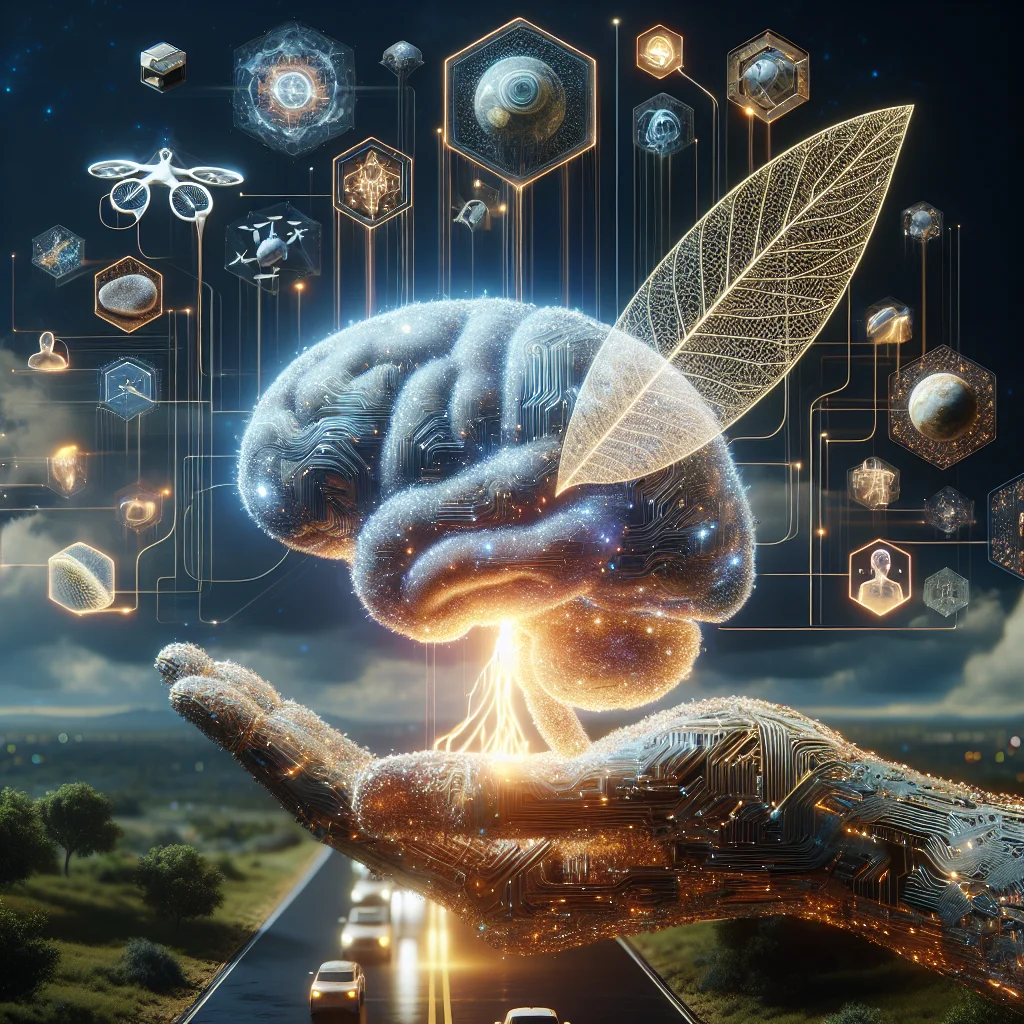Unveiling AI: The Latest Trends and Applications for 2025
March 20, 2025

Artificial Intelligence (AI) has rapidly transformed from a speculative concept into a critical component of our daily lives and industries. In 2025, its significance only continues to grow, influencing everything from healthcare to finance. In this article, we will explore the latest trends in AI, practical applications across various sectors, and insights from industry experts that underscore the technology's relentless march forward.
What are the Latest AI Trends in 2025?
AI is dynamically evolving, and staying informed about its latest trends is essential. One major trend for 2025 is the increased integration of AI with the Internet of Things (IoT). Smart devices are leveraging AI to learn from user behavior, thereby creating more tailored experiences. Imagine a smart home that not only adjusts your heating based on your preferences but anticipates them based on your daily patterns.
Another trend is the rise of generative AI, which produces original content such as images, text, and music. This is reshaping creative fields, allowing artists and designers to collaborate with AI tools for enhanced creativity. Additionally, advancements in natural language processing (NLP) are making human-computer interactions smoother, making AI more accessible for everyone.
How is AI Transforming Industries?
AI applications are vast and varied, influencing multiple industries in profound ways.
Healthcare
In the healthcare sector, AI is revolutionizing diagnostic processes. Algorithms are being developed to analyze medical images with greater accuracy than human experts. This not only speeds up diagnoses but also reduces costs associated with misdiagnoses. Additionally, AI-powered chatbots are enhancing patient interaction, offering preliminary advice and managing appointments, which allows healthcare professionals to focus more on critical tasks.
Finance
AI technologies are playing a crucial role in financial services as well. Algorithms can now assess risk more efficiently than traditional models, providing banks and insurance companies with valuable insights to minimize losses. Furthermore, AI is instrumental in detecting fraudulent transactions by identifying anomalous patterns, thus improving security and trust in financial systems.
Retail
In retail, AI is transforming inventory management and predictive analytics. By utilizing AI, retailers can better forecast demand for products, optimize stock levels, and reduce waste. AI-driven recommendation systems also enhance customer experience by personalizing marketing efforts to individual shopping behaviors.
Insights from AI Thought Leaders
To provide context to these advancements, we reached out to industry experts. According to Dr. Alex Johnson, a leading AI researcher, “The integration of AI into everyday applications is not just about automation; it's about augmenting human capabilities.” Knowledge-sharing will continue to foster innovation in the AI landscape.
Similarly, Julia Martin, a product manager in AI technology, mentions, “As AI tools become more intuitive and user-friendly, we expect higher adoption rates across non-tech industries. This democratizes technology, empowering teams without tech backgrounds to leverage AI effectively.” Such insights highlight the importance of collaboration for future advancements.
What Are the Considerations for Future AI Applications?
While the potential for AI is enormous, there are ethical considerations that must not be overlooked. Organizations must address data privacy concerns as AI systems often require vast amounts of personal data to function effectively. Additionally, issues regarding job displacement due to automation need to be carefully managed. Companies are encouraged to invest in upskilling their workforce to adapt to the evolving landscape.
Interesting Facts About AI's Growth in 2025
The growth of AI is astonishing. According to industry reports, by 2025, the global AI market is expected to exceed $190 billion, demonstrating a compound annual growth rate of over 20%. Furthermore, it's predicted that AI will create 97 million new jobs, allowing for a new wave of workforce opportunities as businesses innovate.
Conclusion
AI is not just a trend; it is shaping the future across multiple sectors and creating endless possibilities. By remaining aware of emerging trends and applications, individuals and businesses can leverage AI's innovative potential while addressing the inherent challenges that come with its integration. Understanding these dynamics is essential for staying ahead in our increasingly digital world.
Back